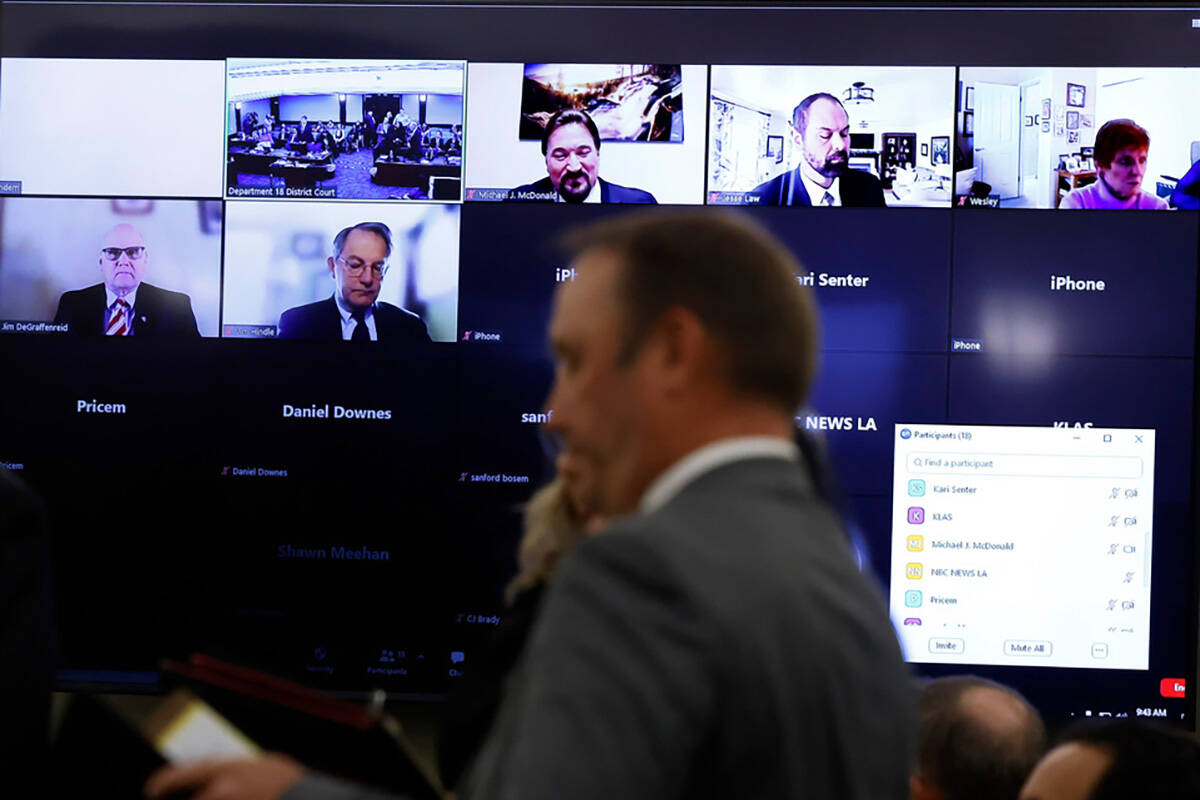Judge agrees to delay hearing in ‘fake electors’ case after Nevada cyberattack
A judge on Friday agreed to delay a preliminary hearing in the so-called “fake electors” case after the state attorney general’s office said its efforts to prepare were stymied by the recent cyberattack on Nevada’s state government.
“This is akin to essentially someone’s office burning down, losing that information and having to recreate the wheel,” said Senior Judge Derek Dreiling, who held the Friday afternoon Zoom hearing in Carson City Justice Court.
Six Republicans are accused of plotting to give Donald Trump Nevada’s electoral votes in 2020, even though Joe Biden won the state by more than 30,000 votes, and signing certificates purportedly handing Trump the votes.
The defendants include Nevada Republican Party Chairman Michael McDonald and Jesse Law, who was chair of the Clark County Republican Party but lost his position in July when a new chair, Jill Douglass, was elected.
“As a result of the network outage, the State of Nevada is unable to access necessary files, evidence, investigative documents, witness information and our own attorney work product needed to adequately prepare for the current preliminary hearing,” Assistant Attorney General Christine Brady wrote in an Aug. 28 filing requesting to continue the hearing previously set for Sept. 11 and 12.
She added that the attorney general’s Las Vegas office remained closed and attorneys could not access their laptops or case management system.
Lawyers for the defendants had opposed delaying the hearing.
Emails included as an exhibit to a defense filing show that Richard Wright, McDonald’s attorney, offered to provide Chief Deputy Attorney General Alissa Engler with materials, including a hard drive containing discovery, after she informed him that prosecutors wanted a continuance.
“The six clients have been facing criminal charges for going on two years now and they are tired of the reputational and professional damage which flows from being a criminal defendant and, especially for several of the accused, they want their Second Amendment rights restored and to be able to purchase ammunition and firearms again,” wrote Wright in his email.
Engler replied that she appreciated Wright’s offer but said that his files “will not contain significant work product that was done over the last several months,” that she could not access her work computer and that she had been instructed not to use external hard drives.
She said at the hearing that the attorney general’s office in Las Vegas was closed until Aug. 29, except for “essential personnel.”
Employees received IT updates on Tuesday, which allowed them to access their work computers for email and Microsoft products, according to Engler. She said the attorney general’s office is “working on options” to reconstruct files and the case management system.
“At this time, we still do not have access to any of our computer management systems, any of our drives,” she said in court.
Engler added: “We’ve unfortunately been given no timeline as to when those systems will be accessible again.”
Attorney Maggie McLetchie, who represents Law, suggested prosecutors could have acquired “a cheap laptop” to access drives.
“I’m concerned about the representations of the state because I do think there are ways to solve this problem together,” she said.
“I appreciate Ms. McLetchie saying I could go purchase a cheap laptop,” Engler replied. “I don’t know if she’s ever worked for the state, but it doesn’t really work that way.
She added: “We’re basically starting from scratch.”
The hearing will now be held Oct. 16 and 17.
Contact Noble Brigham at nbrigham@reviewjournal.com. Follow @BrighamNoble on X.


















